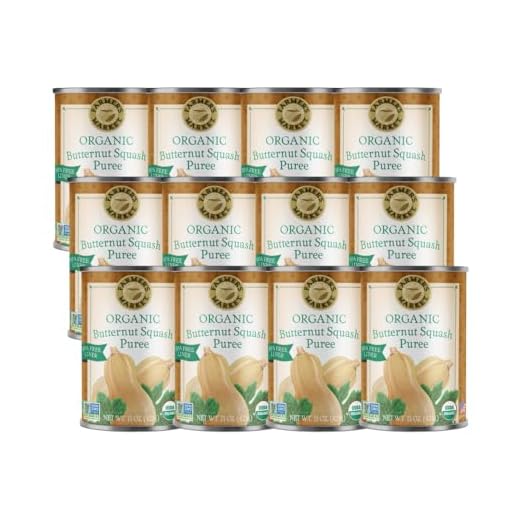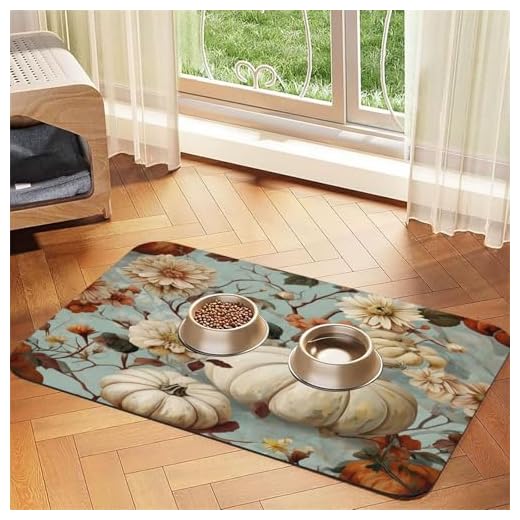



Absolutely, this orange vegetable is safe for me to nibble on! It’s packed with nutrients and can be a tasty treat. Just make sure it’s cooked and plain–no seasoning or butter, please. My human should mash it up or cut it into small pieces to avoid any choking hazards.
Rich in fiber and vitamins, this food can aid digestion and support overall health. However, moderation is key. A small spoonful every now and then is enough to keep it enjoyable without causing any tummy troubles. Always monitor my reaction to new foods, as every feline has unique preferences and tolerances.
If my human is unsure, consulting a vet is a smart move. They can provide tailored advice based on my diet and health needs. Sharing a bit of this delicious treat can be a fun bonding experience, just ensure it complements my usual meals!
Can Cats Enjoy Butternut Squash?
Yes, this vegetable can be a safe treat in small amounts. It offers fiber and vitamins that may benefit felines. However, moderation is key to avoid digestive issues.
Here are some important points to consider:
- Always cook the vegetable before offering it. Raw forms can be tough on the stomach.
- Remove the skin and seeds, as they can pose choking hazards.
- Introduce it gradually to monitor for any adverse reactions.
- Consult with a veterinarian if unsure about including new foods in the diet.
It’s interesting to note that while some animals consume plants in the wild, not all veggies are suitable for domesticated companions. For more insights on their dietary habits, check out the article on do cats eat vegetables in the wild.
Health Benefits of Butternut Squash for Felines
Including this orange veggie in a feline’s diet can provide several health perks. First, it’s rich in fiber, which aids in digestion and helps to prevent hairballs. A smooth tummy is a happy tummy!
This gourd is also packed with vitamins A and C. Vitamin A supports good vision and a healthy immune system, while vitamin C can help reduce inflammation. Maintaining overall health is key.
Low-Calorie Snack
Offering this squash as an occasional treat is a great way to provide a low-calorie option. It’s perfect for those of us who need to watch our waistlines. A bit of this veggie can satisfy cravings without the guilt.
Hydration Boost
With its high water content, this food can contribute to hydration. Staying hydrated is essential for kidney function, and every little bit helps, especially for those who may not drink enough water.
While exploring new foods, always keep an eye on reactions. If there’s any doubt about safety, refer to resources, like are gardenia plants toxic to cats, for guidance on what’s safe and what’s not.
How to Safely Introduce Squash to Your Diet
Start with a small amount of cooked and mashed vegetable. Ensure it’s plain, with no added seasonings or oils. Monitor for any adverse reactions like vomiting or diarrhea. If everything goes smoothly, gradually increase the portion over several days.
Preparation Tips
Steam or bake the vegetable until soft. This method enhances digestibility and retains nutrients. Avoid raw pieces, as they can be difficult to chew and digest. Always let it cool before serving.
Serving Suggestions
Mix a tiny bit into regular food or offer it as a treat. Keep portions minimal to prevent any stomach upset. If your human likes to create meals, they can blend it into homemade recipes tailored for furry friends.
Absolutely, this orange vegetable is safe for me to nibble on! It’s packed with nutrients and can be a tasty treat. Just make sure it’s cooked and plain–no seasoning or butter, please. My human should mash it up or cut it into small pieces to avoid any choking hazards.
Rich in fiber and vitamins, this food can aid digestion and support overall health. However, moderation is key. A small spoonful every now and then is enough to keep it enjoyable without causing any tummy troubles. Always monitor my reaction to new foods, as every feline has unique preferences and tolerances.
If my human is unsure, consulting a vet is a smart move. They can provide tailored advice based on my diet and health needs. Sharing a bit of this delicious treat can be a fun bonding experience, just ensure it complements my usual meals!
Can Cats Enjoy Butternut Squash?
Yes, this vegetable can be a safe treat in small amounts. It offers fiber and vitamins that may benefit felines. However, moderation is key to avoid digestive issues.
Here are some important points to consider:
- Always cook the vegetable before offering it. Raw forms can be tough on the stomach.
- Remove the skin and seeds, as they can pose choking hazards.
- Introduce it gradually to monitor for any adverse reactions.
- Consult with a veterinarian if unsure about including new foods in the diet.
It’s interesting to note that while some animals consume plants in the wild, not all veggies are suitable for domesticated companions. For more insights on their dietary habits, check out the article on do cats eat vegetables in the wild.
Health Benefits of Butternut Squash for Felines
Including this orange veggie in a feline’s diet can provide several health perks. First, it’s rich in fiber, which aids in digestion and helps to prevent hairballs. A smooth tummy is a happy tummy!
This gourd is also packed with vitamins A and C. Vitamin A supports good vision and a healthy immune system, while vitamin C can help reduce inflammation. Maintaining overall health is key.
Low-Calorie Snack
Offering this squash as an occasional treat is a great way to provide a low-calorie option. It’s perfect for those of us who need to watch our waistlines. A bit of this veggie can satisfy cravings without the guilt.
Hydration Boost
With its high water content, this food can contribute to hydration. Staying hydrated is essential for kidney function, and every little bit helps, especially for those who may not drink enough water.
While exploring new foods, always keep an eye on reactions. If there’s any doubt about safety, refer to resources, like are gardenia plants toxic to cats, for guidance on what’s safe and what’s not.
How to Safely Introduce Squash to Your Diet
Start with a small amount of cooked and mashed vegetable. Ensure it’s plain, with no added seasonings or oils. Monitor for any adverse reactions like vomiting or diarrhea. If everything goes smoothly, gradually increase the portion over several days.
Preparation Tips
Steam or bake the vegetable until soft. This method enhances digestibility and retains nutrients. Avoid raw pieces, as they can be difficult to chew and digest. Always let it cool before serving.
Serving Suggestions
Mix a tiny bit into regular food or offer it as a treat. Keep portions minimal to prevent any stomach upset. If your human likes to create meals, they can blend it into homemade recipes tailored for furry friends.
Absolutely, this orange vegetable is safe for me to nibble on! It’s packed with nutrients and can be a tasty treat. Just make sure it’s cooked and plain–no seasoning or butter, please. My human should mash it up or cut it into small pieces to avoid any choking hazards.
Rich in fiber and vitamins, this food can aid digestion and support overall health. However, moderation is key. A small spoonful every now and then is enough to keep it enjoyable without causing any tummy troubles. Always monitor my reaction to new foods, as every feline has unique preferences and tolerances.
If my human is unsure, consulting a vet is a smart move. They can provide tailored advice based on my diet and health needs. Sharing a bit of this delicious treat can be a fun bonding experience, just ensure it complements my usual meals!
Can Cats Enjoy Butternut Squash?
Yes, this vegetable can be a safe treat in small amounts. It offers fiber and vitamins that may benefit felines. However, moderation is key to avoid digestive issues.
Here are some important points to consider:
- Always cook the vegetable before offering it. Raw forms can be tough on the stomach.
- Remove the skin and seeds, as they can pose choking hazards.
- Introduce it gradually to monitor for any adverse reactions.
- Consult with a veterinarian if unsure about including new foods in the diet.
It’s interesting to note that while some animals consume plants in the wild, not all veggies are suitable for domesticated companions. For more insights on their dietary habits, check out the article on do cats eat vegetables in the wild.
Health Benefits of Butternut Squash for Felines
Including this orange veggie in a feline’s diet can provide several health perks. First, it’s rich in fiber, which aids in digestion and helps to prevent hairballs. A smooth tummy is a happy tummy!
This gourd is also packed with vitamins A and C. Vitamin A supports good vision and a healthy immune system, while vitamin C can help reduce inflammation. Maintaining overall health is key.
Low-Calorie Snack
Offering this squash as an occasional treat is a great way to provide a low-calorie option. It’s perfect for those of us who need to watch our waistlines. A bit of this veggie can satisfy cravings without the guilt.
Hydration Boost
With its high water content, this food can contribute to hydration. Staying hydrated is essential for kidney function, and every little bit helps, especially for those who may not drink enough water.
While exploring new foods, always keep an eye on reactions. If there’s any doubt about safety, refer to resources, like are gardenia plants toxic to cats, for guidance on what’s safe and what’s not.
How to Safely Introduce Squash to Your Diet
Start with a small amount of cooked and mashed vegetable. Ensure it’s plain, with no added seasonings or oils. Monitor for any adverse reactions like vomiting or diarrhea. If everything goes smoothly, gradually increase the portion over several days.
Preparation Tips
Steam or bake the vegetable until soft. This method enhances digestibility and retains nutrients. Avoid raw pieces, as they can be difficult to chew and digest. Always let it cool before serving.
Serving Suggestions
Mix a tiny bit into regular food or offer it as a treat. Keep portions minimal to prevent any stomach upset. If your human likes to create meals, they can blend it into homemade recipes tailored for furry friends.









